Psycho-Cybernetics: Part 2
In the first episode of my Psycho-Cybernetics blog-series, I summarized the chapter about the importance of your self-image, because the first thing we must realize is that a human can only act, feel and perform in accordance with what he imagines to be true about himself and his environment. If you haven't read the previous episode, you can click <<here>>
Now let's continue..
The Truth about Yourself
Science has now confirmed what philosophers, mystics, and other intuitive people have long declared: every human being has been literally "engineered for success".
Just to make sure we're on the same page, I will use Noah Webster's definition of success, which says: Success is "the satisfactory accomplishment of a goal sought for." Creative striving for a goal that is important to you as a result of your own deep-felt needs, aspirations and talents (and not the symbols) brings happiness as well as success because you will be functioning as you were meant to function. Man is by nature a goal-striving being. And because man is "built that way" he is not happy unless he is functioning as he was made to function—as a goal-striver.
If you were engineered for success and happiness, then the old picture of yourself as unworthy of happiness, of a "failure type" person, must be in error.

PSYCHO-CYBERNETICS - A NEW CONCEPT OF HOW YOUR BRAIN WORKS
The word "Cybernetics" comes from a Greek word which means literally, "the steersman." Servo-mechanisms are so constructed that they automatically "steer" their way to a goal, target, or "answer."
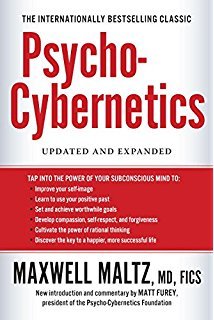
The science of Cybernetics does not tell us that "man" is a machine but that man has and uses a machine. Moreover, it tells us how that machine functions and how it can be used.
Psycho- Cybernetics, Maxwell Maltz
The number of switching devices in the human brain vastly exceeds the number in any computing machine yet developed, or even thought of for design in the near future. But even should such a machine be built, it would lack an "operator."
Note:
That would mean that you are not your body! And if we think about it.. our body doesn't care about your goals and aspirations, it doesn't care about your well-being. Your body, if you don't learn how to navigate and control it, just like an untrained horse will wander around, doing what it wants, and that certainly isn't to get out of its comfort zone and would rather eat grass all day instead of jumping over hurdles and winning trophies...
Your body is your horse that you can train to work for you, and not against you.
How many times have you told yourself you are going to start doing something you want, or quit doing something that's bad for you? You tell yourself, you know what you want, but then this happens..
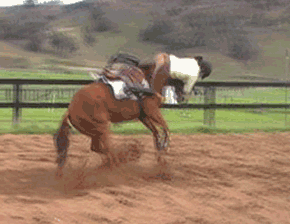
.. in other words your body doesn't listen to you. You really want to get in shape you know what it takes, but your body doesn't correspond. Or you know what it takes to make more sales, but still you don't do it.
Just like there are only few equestrians willing to put in the hours to perfect the relationship, become one with their horse in order to win..

.. only few people are willing to work on their mind-body relationship aka. self-discipline to gain control over their way of living and create an intentional and rich life full of accomplishments.
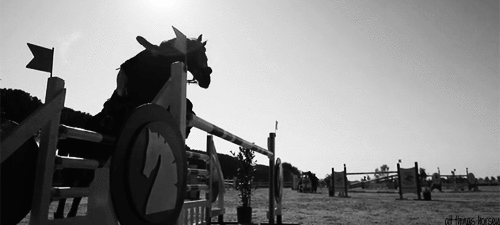
to continue the excerpt..
Even though it grew out of the work of physicists and mathematicians rather than that of psychologists, the new science of cybernetics made an important breakthrough in psychology possible.
The brain and nervous system constitute a marvelous and complex "goal-striving mechanism," a sort of built-in automatic guidance system which works for you as a "success mechanism," or against you as a "failure mechanism," depending on how "YOU," the operator, operate it and the goals you set for it.
When we conceive of the human brain and nervous system as a form of servo-mechanism, operating in accordance with Cybernetic principles, we gain a new insight into the why and wherefore of human behavior.
Let us examine some of the similarities between mechanical servo-mechanisms and the human brain:
THE TWO GENERAL TYPES OF SERVO-MECHANISMS
Servo-mechanisms are divided into two general types:
(1) where the target, goal, or "answer" is known, and the objective is to reach it or accomplish it.
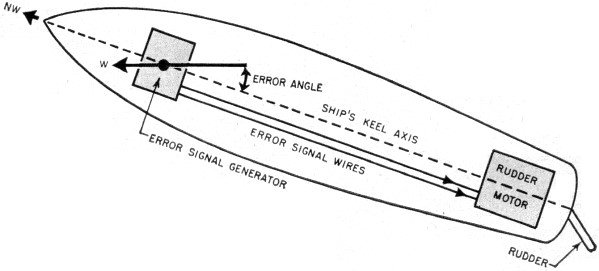
An example of the first type is the self-guided torpedo, or the interceptor missile. The target or goal is known— an enemy ship or plane. The objective is to reach it. Such machines must "know" the target they are shooting for. They must have some sort of propulsion system which propels them forward in the general direction of the target. They must be equipped with "sense organs" (radar, sonar, heat perceptors, etc.) which bring information from the target.
These "sense organs" keep the machine informed when it is on the correct course (positive feedback) and when it commits an error and gets off course (negative feedback). The machine does not react or respond to positive feedback. It is doing the correct thing already and "just keeps on doing what it is doing." There must be a corrective device, however, which will respond to negative feedback. When negative feedback informs the mechanism that it is "off the beam" too far to the right, the corrective mechanism automatically causes the rudder to move so that it will steer the machine back to the left.

If it "overcorrects" and heads too far to the left, this mistake is made known through negative feedback, and the corrective device moves the rudder so it will steer the machine back to the right. The torpedo accomplishes its goal by going forward, making errors, and continually correcting them. By a series of zigzags it literally "gropes" its way to the goal.
Do not be afraid of making mistakes, or of temporary failures. All servo-mechanisms achieve a goal by negative feedback, or by going forward, making mistakes, and immediately correcting course.
(2) where the target or "answer" is not known and the objective is to discover or locate it.
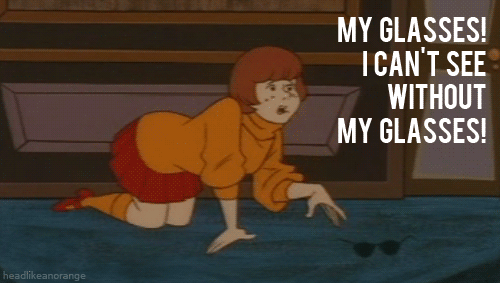
The human brain and nervous system operates in both ways.
When "YOU" select the goal and trigger it into action, an automatic mechanism takes over. You don't need to try picking up a pen right now, you now that you can do that. However try picking a pen up, in darkness. You will need not one movement, but a few trials of groping until you reach it. Your automatic mechanism uses feedback data furnished to the brain by your eyes, which tells it "the degree to which the pen is not picked up." This feedback data enables the automatic mechanism to continually correct the motion of your hand, until it is steered to the pen.
Skill learning of any kind is accomplished by trial and error, mentally correcting aim after an error, until a "successful" motion, movement or performance has been achieved...
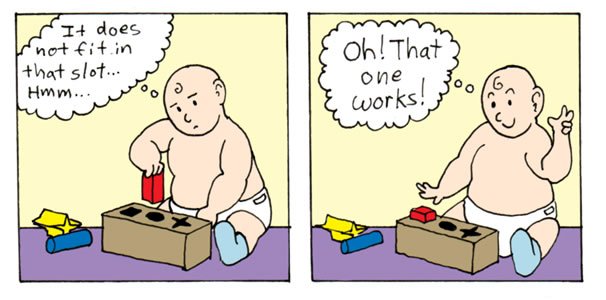
In a baby, just learning to use its muscles, the correction of the hand in reaching for a rattle is very obvious. The baby has little "stored information" to draw upon. Its hand zigzags back and forth and gropes obviously as it reaches. It is characteristic of all learning that as learning takes place, correction becomes more and more refined. Just like a person just learning to drive a car, who "over-corrects" and zigzags back and forth across the street. Once, however, a correct or "successful response" has been accomplished—it is "remembered" for future use. The automatic mechanism then duplicates this successful response on future trials. It has "learned" how to respond successfully.
...after that it "remembers" its successes, forgets its failures, and repeats the successful action without any further conscious "thought"—or as a habit.
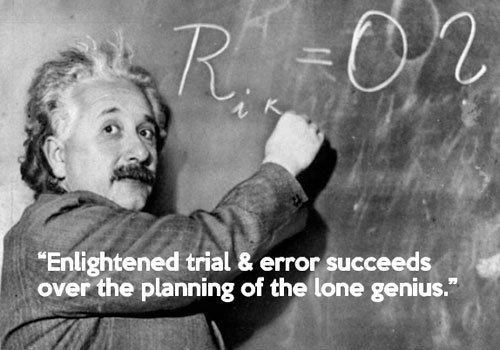
to be continued...
Question of the day: What is one thing you do automatically today, that was an accomplishment once?
As always, feel free to share your thoughts!
Much love,
- Mrs.Steemit
What a post! Really love your motivational talks and I should read this book soon! <3
Thanks! and I think you'd really like the book and its approach :)
Read this book some 30 years ago and agree with you it's as good as it gets in this field, having read many myself. Good job with the summarizations :)
Thanks! I feel like whenever I re-read a chapter I understand it even better :)
Play the oud... Great post. I can play the oud for the rest of my life, and like all the masters before me. I will never truly fully master or understand the art of vibration. Always growing, always learning.
For Best Results: Re Steem,Follow,Upvote and Comment!
Thank you! Absolutely love and agree with your statement "always growing, always learning".
Great post, i like all science post, followed you to look forward of your post
mmmm I must read this book, I've heard such great things about it! Great post!!! :) Followed you!
Thanks! IT's def a must read :)
Great post, @mrs.steemit. Being able to do a tennis serve now is something automatic after a lot of trial and error :)
True, I guess there are many examples in life that prove no matter what we do if we practice consistently we will get better :)
I learned a lot from you're articles and i always wait for your articles because you're building a humans .
Nice metaphors! One thing that was an accomplishment for me was doing exercise, now I see the clock and inmediately stop what I am doing and begin exercising! Waiting for the next one :D
That's a good one. Being in the moment, focusing on the present! Thanks :)
Learnt alot and appreciate the post, would love to start reading more into this was amazing. 😊
Funny I rarely feel like my body.....I mostly see a stranger. In reality i have no form.
great article!